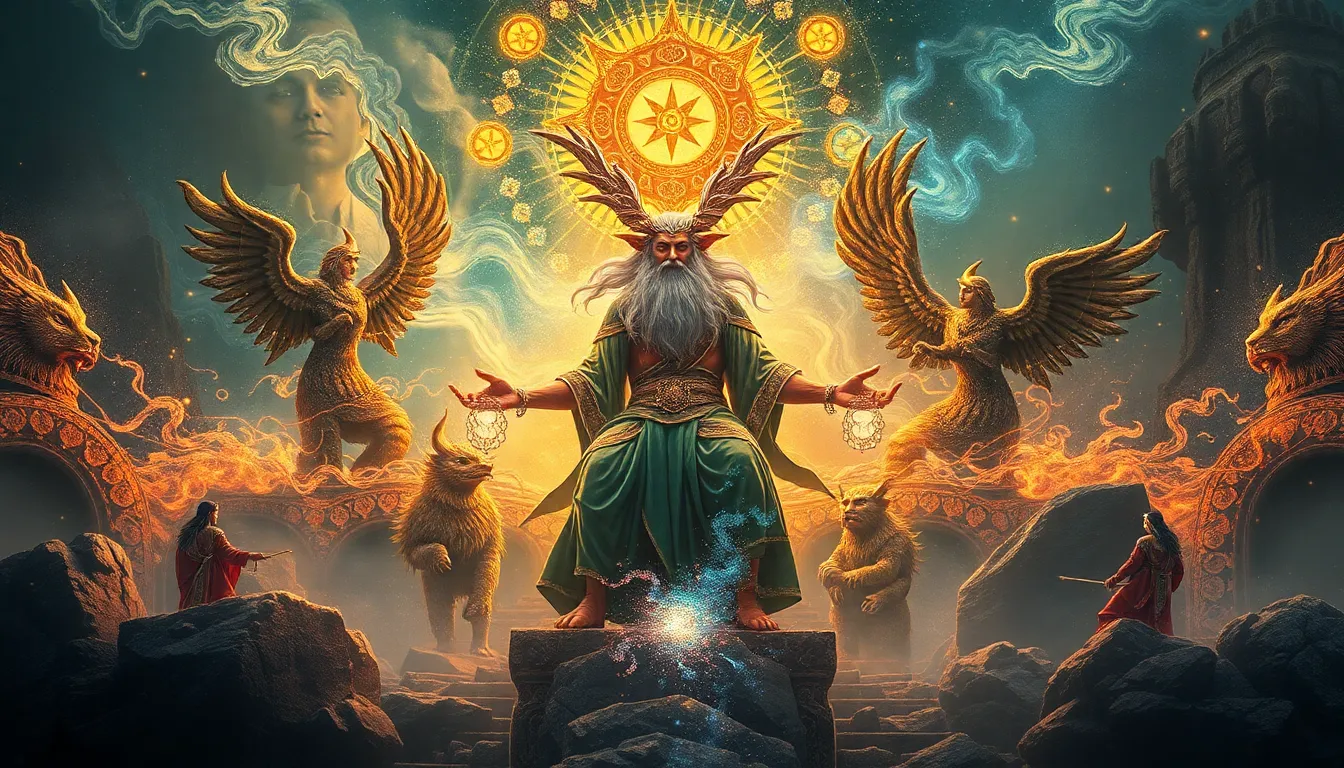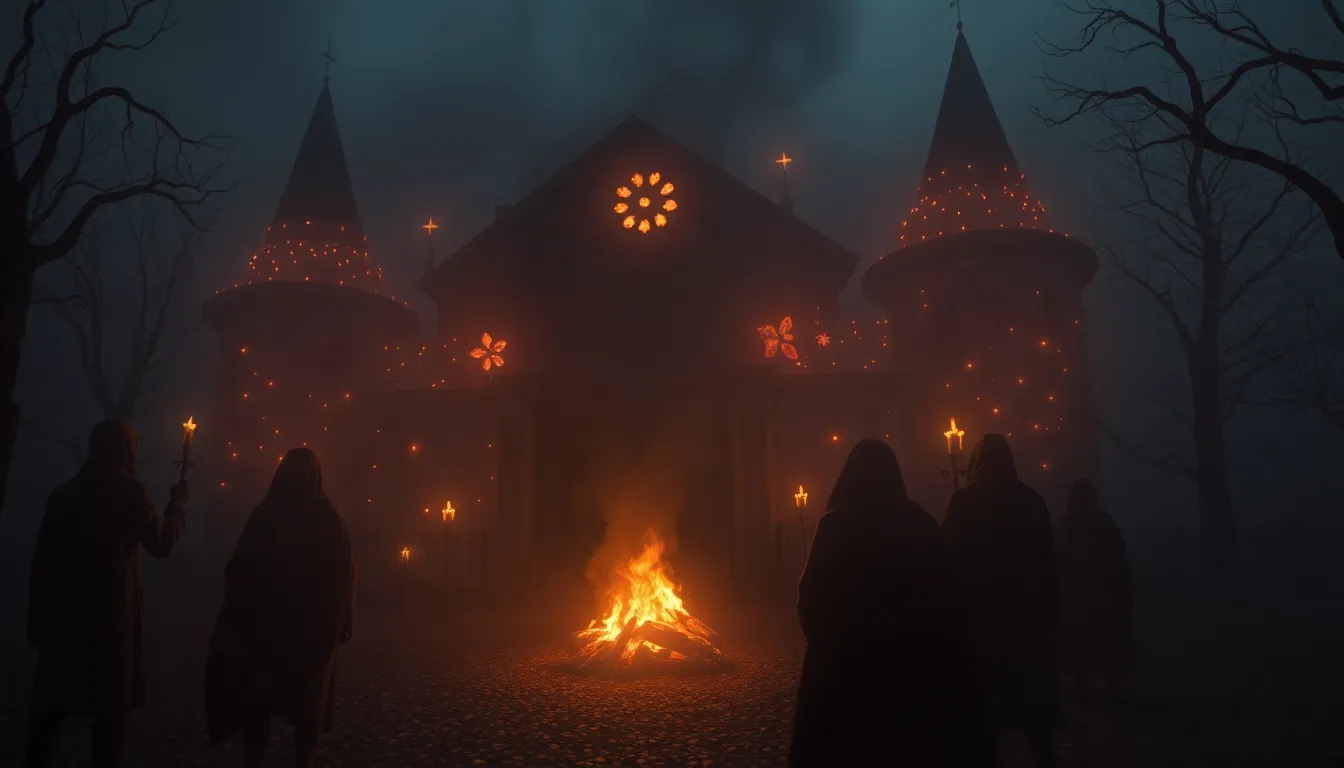From Shadows to Heroes: Transformative Tales of Redemption in Myths
Introduction: The Power of Myths in Shaping Human Experience
Myths have long served as a mirror reflecting the values, beliefs, and aspirations of cultures around the world. These narratives, woven through the fabric of society, provide insight into the human condition, illustrating the struggles, triumphs, and moral dilemmas faced by individuals. Among the myriad themes present in mythology, the narrative of redemption stands out as particularly potent. These stories not only resonate with our intrinsic desire for growth but also reinforce the belief that transformation is possible, even in the face of adversity.
Understanding Redemption: Defining the Journey from Shadows to Heroes
Redemption, in both psychological and mythological contexts, signifies a journey from darkness to light, from despair to hope. It encompasses the idea of atonement, transformation, and the reclamation of one’s true self. Common themes associated with redemption in myths include:
- Conflict and struggle
- Forgiveness and self-acceptance
- The importance of community and support
- Transformation through trials
Symbols such as light, rebirth, and journeying often accompany these narratives, emphasizing the transformative process that characters undergo on their path to redemption.
The Archetype of the Fallen Hero: From Darkness to Light
One of the most significant archetypes in mythology is the fallen hero, a character who has experienced a fall from grace but ultimately seeks redemption. This archetype resonates across various cultures, often serving as a powerful reminder of human flaws and the potential for change. For example:
- Loki: In Norse mythology, Loki is a complex figure—both a trickster and a catalyst for chaos. His eventual downfall and moments of vulnerability illustrate the struggle between darkness and the desire for redemption.
- Aeneas: In Roman lore, Aeneas exemplifies the hero’s journey as he navigates loss and duty, ultimately finding redemption through his sacrifices and the founding of a new city.
These characters embody the struggle against their own flaws and the societal expectations placed upon them, ultimately finding a path to redemption through their trials.
Cinderella Stories: Transformation Through Trials and Tribulations
The “Cinderella” trope—a narrative of transformation following adversity—is prevalent in many mythologies. These stories often depict protagonists who endure suffering yet emerge stronger and more virtuous. The role of suffering in these narratives serves to:
- Highlight resilience and inner strength
- Emphasize the importance of hope and perseverance
- Showcase the potential for transformation and renewal
From the fairy tales of Western cultures to the folk legends of Asia, the theme of redemption through trials is universal, reminding us that even in the darkest moments, change is possible.
The Role of Mentors and Guides: Catalysts for Change
In the journey of redemption, mentor figures often play a pivotal role. These guides not only provide wisdom and support but also challenge the hero to confront their flaws. For instance, in J.R.R. Tolkien’s “The Lord of the Rings,” Gandalf serves as a mentor to Frodo, guiding him through his trials and helping him to recognize his own strength and potential for greatness.
Mentors facilitate the hero’s transformation by:
- Offering guidance and knowledge
- Encouraging self-reflection and growth
- Providing emotional and moral support
Through their influence, heroes are often able to navigate their journeys of redemption, emerging as stronger individuals.
Mythical Journeys: The Hero’s Quest as a Path to Redemption
The concept of the hero’s journey, popularized by Joseph Campbell in his monomyth framework, outlines a universal pattern of adventure and transformation. This structure often includes stages such as the call to adventure, the trials faced, and the eventual return home transformed.
Case studies of mythical journeys that exemplify redemption include:
- Odysseus: His long journey home after the Trojan War is fraught with temptations and challenges that force him to confront his identity and choices, leading to his eventual redemption.
- Persephone: Her descent into the underworld and subsequent return symbolize themes of death and rebirth, paralleling the cyclical nature of life and personal transformation.
These journeys highlight the essential nature of struggle in the quest for redemption, underscoring the belief that true transformation often requires facing one’s fears and challenges.
Cultural Variations: Redemption Myths Across Civilizations
Redemption myths manifest differently across various cultural landscapes, shaped by their unique historical, social, and spiritual contexts. A comparative analysis reveals:
- Greek Myths: Figures like Prometheus embody the struggle for redemption as they defy the gods, seeking to bring light and knowledge to humanity.
- Hindu Epics: Characters like Rama, in the “Ramayana,” illustrate the pursuit of dharma (righteousness) and redemption through their trials and moral choices.
- Native American Legends: Many stories emphasize the connection between humanity and nature, highlighting redemption through balance and harmony with the world.
Each culture’s approach to redemption reflects its values and beliefs, illustrating the universal theme of transformation while celebrating diversity.
Modern Adaptations: Mythical Redemption in Contemporary Storytelling
The influence of ancient myths on modern storytelling is profound, with contemporary literature, film, and media frequently drawing from these timeless narratives. Examples include:
- “The Lion King”: Simba’s journey from exile to king mirrors classic redemption arcs found in many myths.
- “Harry Potter”: Characters like Severus Snape embody the fallen hero archetype, showcasing the complexities of redemption.
These adaptations serve to keep the themes of redemption alive, resonating with audiences and reminding us of the enduring power of these narratives.
The Psychological Impact of Redemption Narratives
Psychological insights into the impact of redemption stories reveal their therapeutic value. These narratives can:
- Encourage self-reflection and personal growth
- Provide frameworks for understanding struggles and resilience
- Inspire hope and a belief in the possibility of change
By engaging with redemption narratives, individuals often find a sense of purpose and direction, helping them navigate their own challenges and transformations.
Conclusion: Embracing the Journey from Shadows to Heroes
Redemption tales, woven throughout the tapestry of mythology, continue to resonate deeply within the human experience. They remind us of our capacity for change, the importance of resilience, and the transformative power of facing our inner darkness. As we reflect on these enduring narratives, we are inspired to seek our own paths to redemption, embracing the journey from shadows to heroes in our lives.




